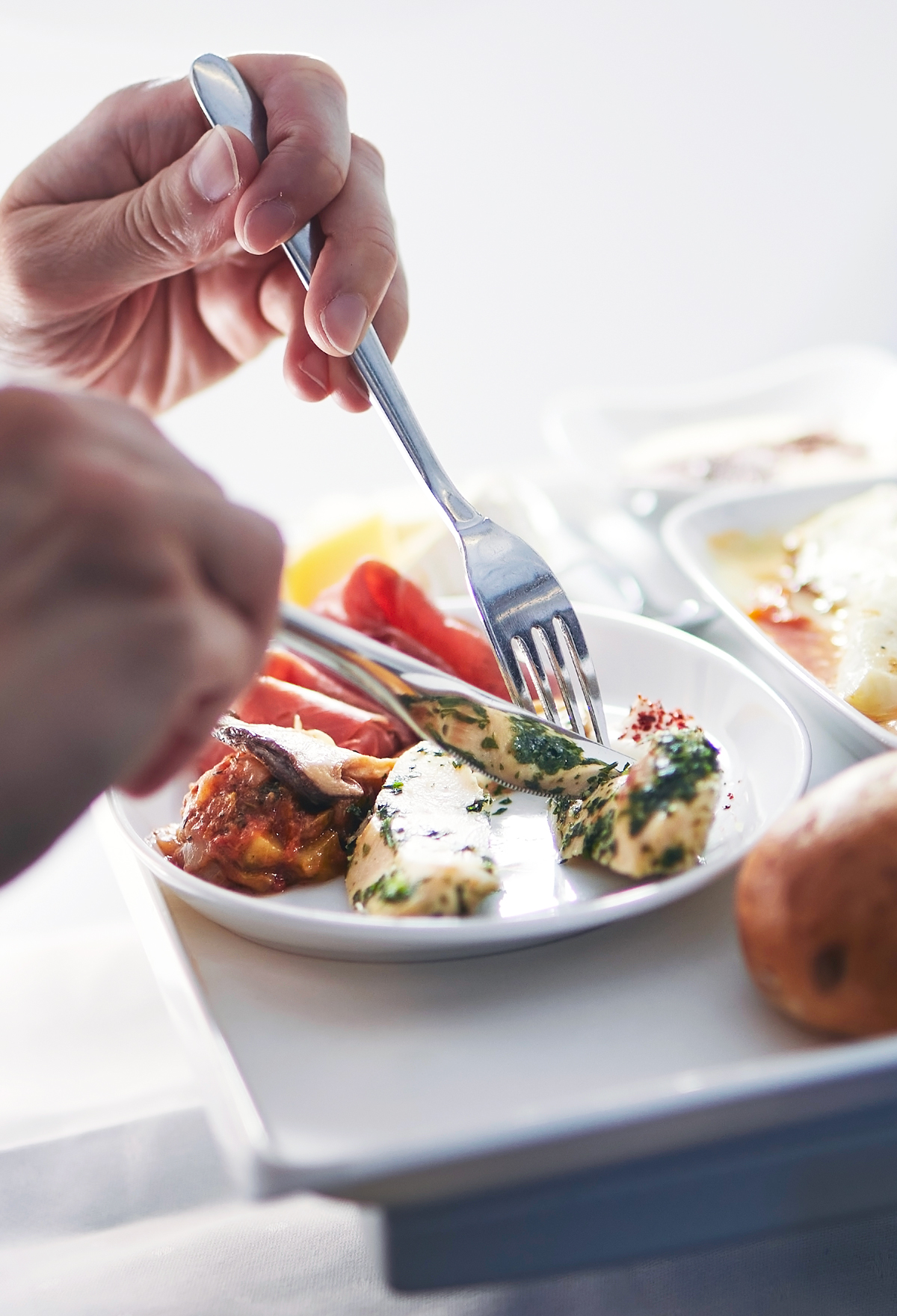With the in-flight meal likely to be bland — that is, if you get one at all — many passengers choose to pack their favorite treats to help keep hunger at bay throughout the flight. But a word of caution: Much like there’s one drink that you should never order on a plane, there are also certain types of food you should think twice before eating at 30,000 feet. Here are foods that you should avoid on airplanes and what you should be eating instead.
Avoid Salty Snacks
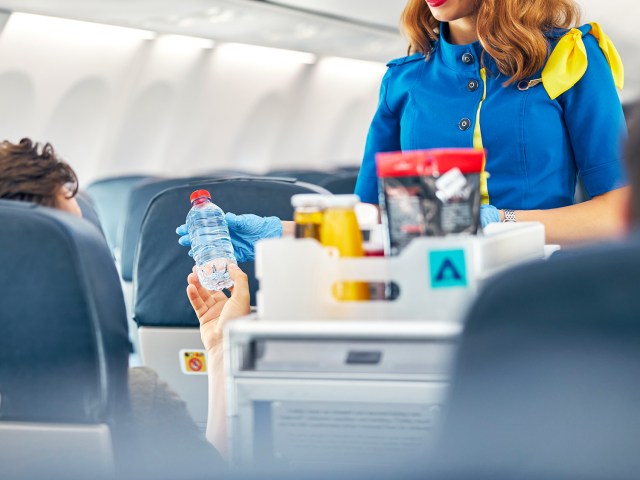
Salty snacks — potato chips, pretzels, and even those tiny bags of airplane peanuts — are among the worst foods you can eat on a plane. Why? Airplane cabins are already dehydrating, and the added salt in these highly processed snacks exacerbates dehydration, causing your body to become fatigued at a more rapid pace. This fatigue may lead to headaches, exhaustion, and jet lag at the other end of your trip. Instead of noshing on these sodium-packed foods, try foods without any added salt, such as granola bars, pear slices, or edamame. The Aerospace Medical Association also suggests drinking 8 ounces of water for every hour you’re in the air in order to stay properly hydrated.
Skip Gas-Inducing Foods
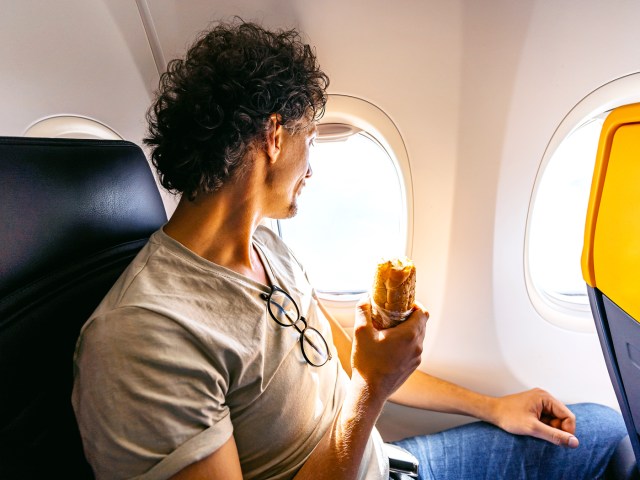
Another type of food to avoid eating on planes is any item that can leave you feeling bloated and gassy. This includes carbohydrate-rich and fibrous foods such as broccoli, lentils, and nuts. While gas is never comfortable to deal with, it can be particularly unpleasant aboard a plane. The pressurized cabins and changes in atmospheric pressure cause the air cavities in your digestive system to expand. Often, this results in a more intense bloated feeling than you’d normally experience back on the ground.
Steer Clear of Stinky Foods
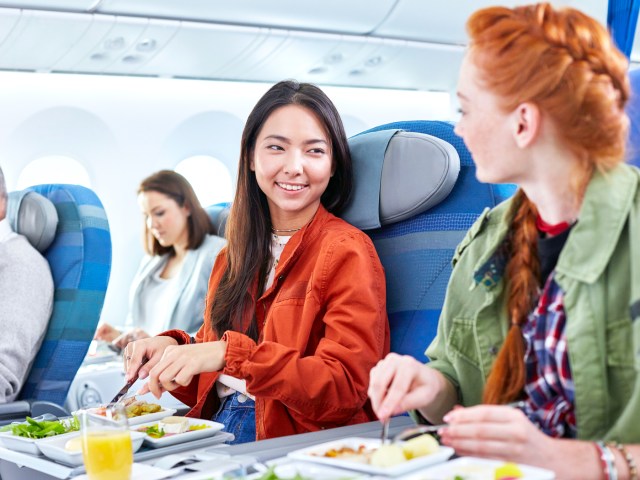
It’s also important to remember that planes are communal spaces where rules of etiquette apply. This is why you should refrain from eating particularly odorous foods while flying — it’s the least you can do for your fellow passengers. Tuna sandwiches, hard-boiled eggs, and garlicky pastas can be quite tasty, but they also tend to be potent and can stink up the cabin. When in doubt, leave those smelly snacks at home in favor of foods with more neutral odors.
Don’t Skip the Meal
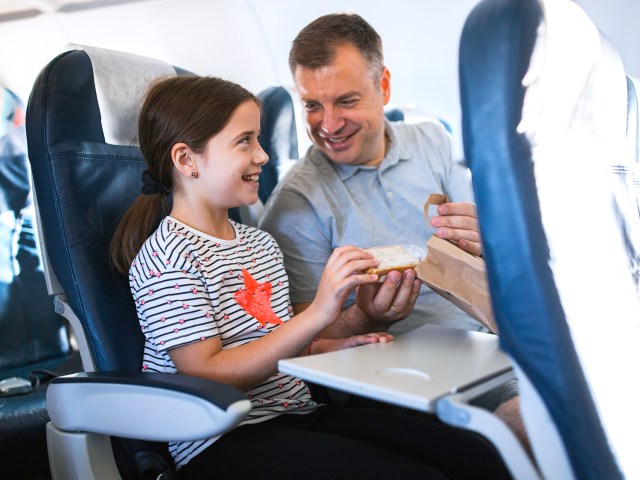
It may be tempting to fast during a flight to ensure you don’t eat the wrong thing — or simply because the onboard options are unappealing or overpriced. But it’s also risky to go prolonged periods on an airplane without eating, as that may lead to lower blood sugar. Low blood sugar may mean worsening jet lag when you finally reach your destination. So, always try to eat something on a plane in order to keep your blood sugar levels stable.
The Best Foods To Eat on a Plane
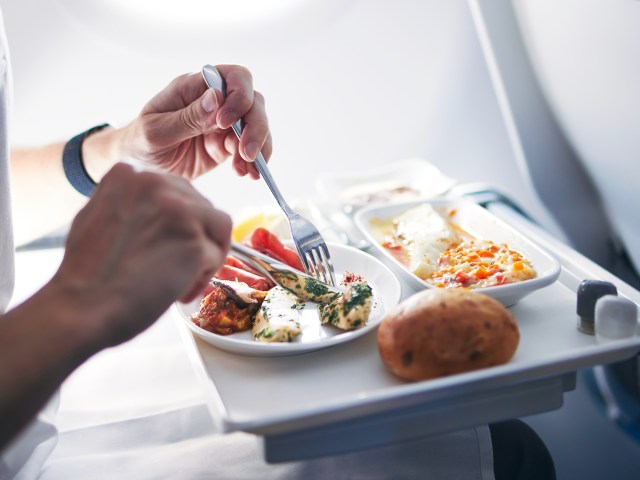
If you’re taking a long-haul flight, there are some foods that are ideal for keeping you energized and satiated. One of the best plane snacks is a protein bar, which can provide you with enough energy to arrive at your destination feeling refreshed and ready to explore. If you receive a meal on the flight, consider ordering a lean protein dish like chicken breast, which also provides the body with necessary energy. Fresh fruits such as oranges and bananas are another excellent option, as they act as both natural immune boosters and anti-inflammatories.
More from our network
Daily Passport is part of Inbox Studio, an email-first media company. *Indicates a third-party property.






